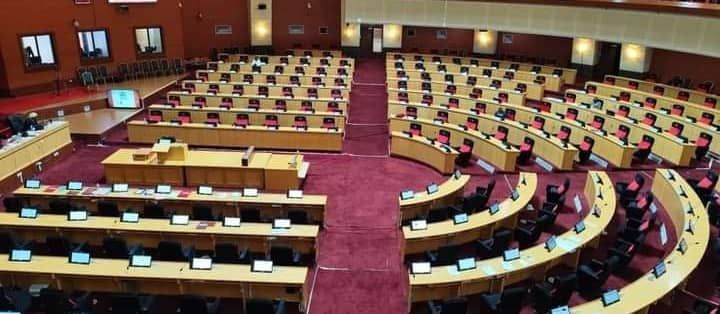By Burnett Munthali
The Parliament of Malawi serves as the cornerstone of democratic governance, providing a forum for public debate, law-making, and holding the government accountable. In its ideal form, Parliament is a space where both the ruling government and the opposition work together to further the interests of the nation. However, the way in which Parliament is utilized by both sides plays a significant role in shaping Malawi’s political and social landscape.
Firstly, for the government, Parliament should primarily be seen as a platform to fulfill its constitutional mandate and implement its political agenda. The government is responsible for proposing legislation, presenting national budgets, and responding to the needs of the people. It is in Parliament that the government demonstrates its commitment to development, public welfare, and justice.

However, it is crucial that the government uses Parliament not as a tool for political advantage but as a place where policies are debated, refined, and passed in the best interest of the citizens. The government must promote transparency, accountability, and inclusiveness, especially when presenting the national budget, making policy statements, or introducing new laws. A government that uses Parliament responsibly is one that strengthens democracy by encouraging open dialogue and ensuring that its decisions are scrutinized and debated by all MPs, regardless of party affiliation.
Secondly, the opposition plays a critical role in ensuring that the government remains accountable to the public. In Malawi, as in any democracy, a strong opposition is essential to the functioning of Parliament. The opposition should not simply serve as a counterbalance to the government, but rather as an active participant in the legislative process, offering alternative policies, scrutinizing government actions, and providing checks and balances to prevent abuse of power.
An effective opposition is one that focuses on constructive criticism and well-researched alternatives, rather than engaging in partisan attacks or obstructing legislation out of political expediency. While the opposition has the right to challenge the government, it should aim to contribute positively to the national discourse and help shape laws and policies that are beneficial for all Malawians, not just those who voted for the opposition parties.
Thirdly, for Parliament to work effectively, both the government and the opposition must recognize their shared responsibility to serve the people of Malawi. This requires a spirit of cooperation, even when disagreements arise. Parliamentary debates should not descend into hostile exchanges but should focus on the substance of the issues at hand. A parliament that is characterized by respect, collaboration, and compromise will yield better outcomes for the nation.
Fourthly, another crucial aspect of Parliament’s function is its relationship with the people it represents. Both the government and the opposition must work to ensure that citizens are actively involved in the democratic process. Parliament must be a reflection of the people’s needs, and this can only happen if the public is informed and able to participate in the decision-making process. Public consultations, transparency in legislative proceedings, and the involvement of civil society organizations are essential to the effective functioning of Parliament.
In conclusion, the best use of Parliament by both the government and the opposition is one that promotes democratic values, transparency, and the well-being of the Malawian people. The government must use Parliament to govern responsibly, while the opposition must ensure that it provides constructive feedback and alternatives. Both sides should strive to cooperate in a manner that strengthens the democratic process, rather than merely seeking to outmaneuver each other for political gain.
A Parliament that works for the people is one where all members—whether in government or opposition—are committed to the common good, prioritizing the interests of the nation over party politics. This vision of Parliament as a space for genuine debate, mutual respect, and collaboration should guide the actions of all MPs as they navigate the challenges and opportunities of governance in Malawi.


